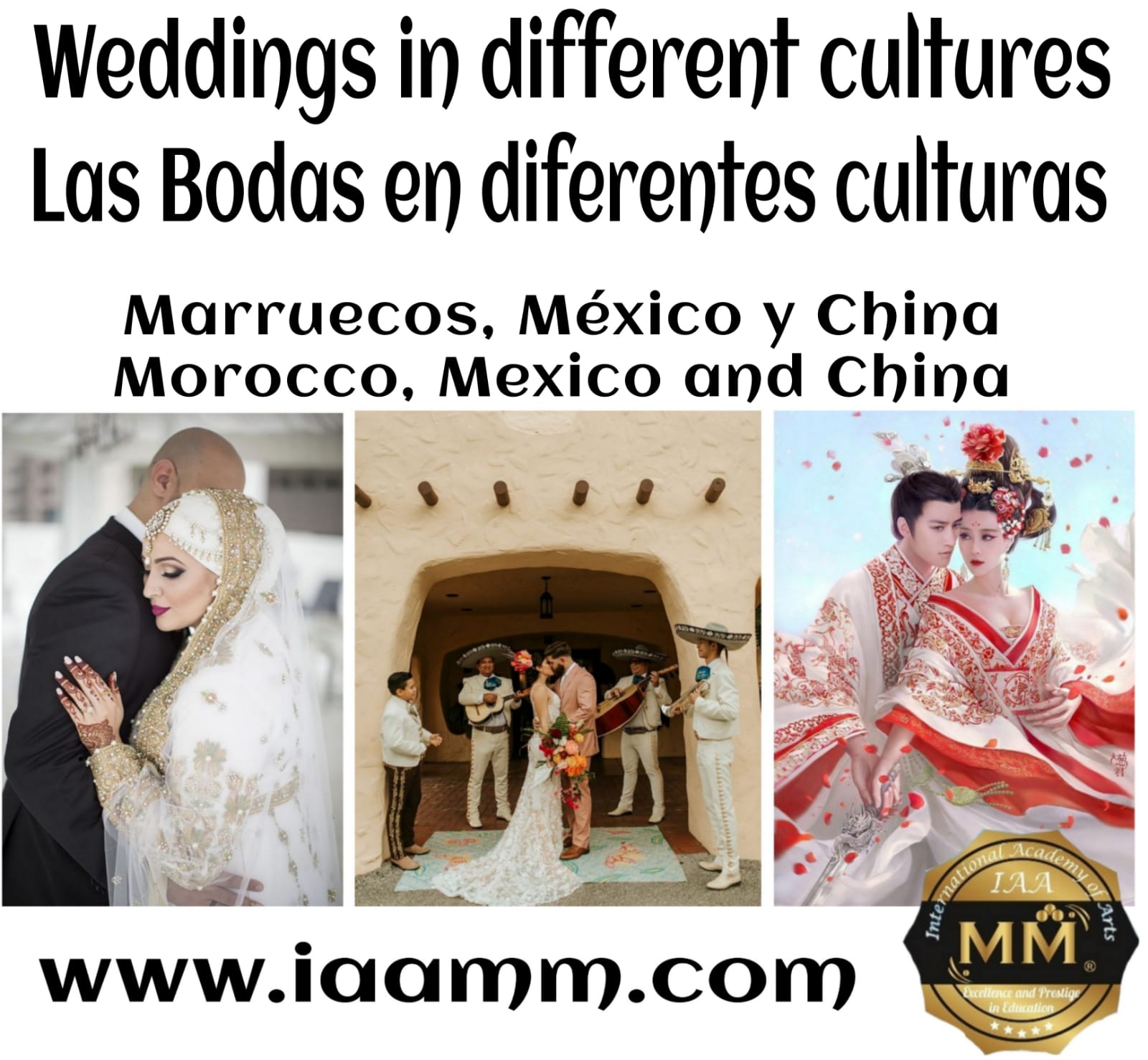Who doesn’t like weddings? We believe that it is a great event and they are always surrounded by happiness and love, we know that each wedding is a unique and unrepeatable event for each couple that decides to join in marriage, and the truth is that there are great differences, certain rituals or particular moments that depend of the country and culture where the wedding is held.
How are weddings celebrated in different cultures?
Next, we will tell you about the particular situations of some ceremonies such as the Moroccan, Mexican and Chinese culture, talking a bit about aspects like customs and activities within the ceremony of each one.
Weddings in Mexico
In Mexico it is very common for weddings to be held in the afternoons or summer nights.
In a Mexican wedding it is a tradition that during the church ceremony, the priest wraps a rosary, a bow or a band of flowers around the neck of the couple in the shape of an eight, to symbolize the union of the bride and groom and to mention that they are one alone and what one does, will have repercussions for better or for worse on the other. The groom also gives the bride 13 gold or silver coins that represent Christ and the Apostles.
As for food there are always beans, tortillas and food spiced with chilli because they cannot be missing in every Mexican wedding, the traditional cake that has rum, nuts and dried fruit should also be highlighted.
The wedding music is a march that works as a presentation of the couple at the beginning of the ceremony, the Ave Maria is sung during the ceremony and the bride offers a bouquet of flowers to the Virgin Mary as a thankful moment for her protection.
When the bride and groom leave the church, it is a tradition that guests throw rice over them as a symbol of fertility and prosperity, and you can hear the mariachi playing.
After the festivities, the godmothers and bridesmaids act as counselors, explaining to the bride the details of her life as a married woman.
Weddings in Morocco
Morocco is in North Africa, and weddings are traditionally held trying to coincide with the harvest period, and they do so to ensure that more food is available for guests.
Weddings in Morocco can last up to seven days, the first three days are dedicated to the grooming of the bride and the organization of the party, on the fourth day the ceremony is held, and the following days are to share the party with the rest of the the guests.
The food that is most present on the menu are fish and chicken because they are considered symbols of fertility, cuscus is usually part of the banquet as well.
The wedding music is called “zaffa”, the instruments that sound during the night celebrations are the zithers, drums and tambourines.
As part of the gift that is given to the bride are milk baths and massages, because these things are part of the purification ceremony for her before the wedding.
Weddings in China
In traditional Chinese weddings to choose the date of the ceremony, they are governed by astrology, therefore, the bride and groom choose the most appropriate date taking as a reference their dates of birth.
Before the ceremony, a ritual is performed in which the future husband walks towards the bride’s house, as he arrives, the bridesmaids make him wait for a while and then the groom delivers the dowry, if it is considered as enough, he is invited to enter the room where the bride is, there he will meet the bride’s parents and they will all have tea together, which serves as a farewell ritual.
Weddings in China are very ostentatious and no expense is spared, during the wedding special dishes such as shark soup or bird’s nest are served, which are considered as authentic delicacies.
About music, the lion dance is very typical, which is used to drive away evil spirits.
As the final part of the party, the guests follow the newlyweds to the bedroom, pulling them loudly.
And this is how weddings are done in these 3 cultures. We hope you liked this information and to learn more about weddings, event management and preparing them, follow us on our networks and sign in for our certification as a Wedding Planner.


Comments (1)
Good luck!